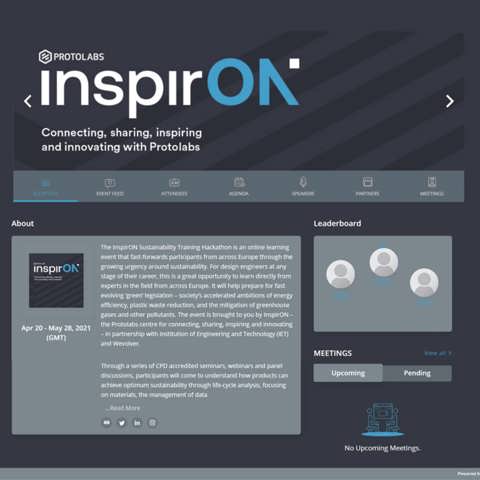Engineers have been designing with sustainability in mind for generations. The sustainable acquisition of resource has always been a factor in the making of things but recent years have seen sustainability increase its presence in public conscience and discourse. As a consequence, governments and businesses are signing up to climate change agreements, compounding an acceleration of legislation. In turn, brands will need to accelerate their response in order to maintain the level of commitment that is legally required of them.
Change has been continuous and manageable over the years, with only specific sectors needing to move more abruptly due to competition or stark changes in industry regulation. Transportation – most notably aerospace and automotive – has been the focus of enormous scrutiny for years and has been responding with investment in energy efficiency, and particulate and carbon reduction technologies. Certain consumer goods have also been the focus of scrutiny with some brands taking measures against excessive packaging, CO2 output, and making use of recycled or biodegradable material.

These changes are all well documented, and many design engineers live and breathe sustainability, but generally knowledge and attitudes are far from reflecting the more stimulated change we can expect over the decade ahead.
And that change is coming. Through the Paris Climate Agreement, in December last year the European Union updated its target to reduce greenhouse gas emissions by at least 55% by 2030 from 1990 levels. That same month the UK government announced its plan to reduce greenhouse gas emissions by at least 68% within the same timeframe. This most ambitious target is backed by a ten point ‘green industrial revolution’ plan that includes a significant increase in R&D investment.
Waste reduction is also a key factor in sustainability. Not only is a circular economy vital in the fight against plastic waste, so too is changing the way designers design plastic products. Producers will be obliged to ‘clean up’ plastic waste and consumers will be limited through reductions in plastics consumption. The EU’s Plastics Strategy and the UK government’s Waste Strategy are designed to tackle wasteful and damaging litter through legislative action. The measures will not be restricted to single-use plastics and they will contribute to achieving the United Nations Sustainable Development Goals.
The ambitions of governments will lean more heavily on manufacturers and on those designing the products, creating the great engineering challenge of tomorrow.
Preparation by sharing knowledge
The design engineers who currently live and breathe sustainability are in a position to share their knowledge and insight to prepare others for this challenge.
For design engineers who need to develop their knowledge and skills in preparation for the challenge ahead, support should be forthcoming. Engineering expertise in the area of sustainability is confined to a relative few, so it’s important that provision is made to help share this knowledge.
It’s vital not only to design engineers but also to the companies and brands who employ them. Recycled plastics, bioplastics, production efficiencies are specific examples of what many companies are already engaged in, but a comprehensive approach to sustainability, such as life-cycle analysis (LCA), will become a necessity everywhere in order to sufficiently respond to consumer demand and legislation around sustainable development goals.
The Protolabs Sustainability Training Hackathon is precisely the support needed to help meet this challenge. It’s an online training event, in partnership with the Institution of Engineering and Technology (IET) and Wevolver, that will comprise training seminars conducted by a number of industry experts such as Chris Grantham, Executive Director of Circular Economy at IDEO, Andrew Carr, Design Manager at Elvie and many more. It will cover a variety of topics including common mistakes made, best practice – now and in the future, sustainable materials advancements and much more besides. There will also be an exciting and engaging team challenge that will help put these learnings into practice.
What’s more, even though it holds tremendous value to those who participate, the Training Hackathon is being offered free of charge. The number of places is capped, so it’s worth moving quickly to secure a place.
With a suitable framework in place, such as the Protolabs Sustainability Training Hackathon, design engineers will be better placed to meet the regulatory and consumer demands of the future – for themselves, for their employers and for their customers.
To register as a participant, please click here







